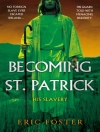In the evocative anthology ‘Fantasmagoriana – The Tales of the Dead, ‘ readers are transported to a realm where the boundaries between the living and the spectral are blurred. Encompassing an array of eerie tales, this collection adeptly captures the Gothic spirit prevalent in early 19th-century literary movements across Europe. Through a fusion of suspenseful narratives, mystifying characters, and atmospheric suspense, the anthology provides a rich tapestry of ghostly encounters and supernatural phenomena, showcasing a diversity of literary styles that range from the hauntingly poetic to the starkly terrifying. Each story, a masterpiece in its own right, contributes to an overarching exploration of mortality, fear, and the unknown. The collection features tales penned by the likes of Johann Karl August Musäus, Johann August Apel, and Friedrich August Schulze, whose works collectively echo the zeitgeist of Gothic literature during their time. Drawing upon their varied backgrounds and preoccupations with folklore, myth, and early European supernatural traditions, these authors weave stories infused with cultural and historical nuances. They explore the human psyche’s fascination with the macabre, weaving together a chorus of voices that resonate with echoes of regional lore and the Romantic era’s philosophical inquiries. ‘Fantasmagoriana – The Tales of the Dead’ is an essential read for those yearning to explore the chilling depths of the Gothic tradition. It presents a unique opportunity to engage with timeless tales that challenge and enrich the reader’s imagination, inviting them to revel in the complex interplay of fear and curiosity. Scholars, enthusiasts of Gothic studies, and literary adventurers alike are encouraged to delve into this anthology to appreciate the breadth of insights and the evocative dialogue that reverberates brilliantly through its pages.
लेखक के बारे में
Johann Karl August Musäus (1735–1787) was a German author best known for his contribution to German folklore and satire. Born in Jena, Thuringia, Musäus was initially educated to follow a theological path, but his inclination towards literature prevailed. An advocate of the Enlightenment, Musäus’s works often reflected his skepticism towards superstition and his inclination towards rationalism, yet he maintained a deep fascination with folktales and myths. His five-volume collection ‘Volksmärchen der Deutschen’ (‘German Folk Tales’), published between 1782 and 1787, is a cornerstone in the legacy of German folklore, a field later graced by the likes of the Brothers Grimm. Amongst his noteworthy works is also ‘Fantasmagoriana – The Tales of the Dead’, a compendium of spectral tales which gained notoriety for its encapsulation of supernatural and gothic themes. Musäus’s literary style incorporates touches of irony and humor, designed to both entertain and subtly criticize contemporary societal norms and literary tropes. While his work lacked the immediate universal appeal of some contemporaries, Musäus was a seminal figure in the Sturm und Drang movement, paving the way for subsequent German Romantic literature. His stories, rich in narrative complexity and moral overtones, continue to be an important part of the European literary canon.












